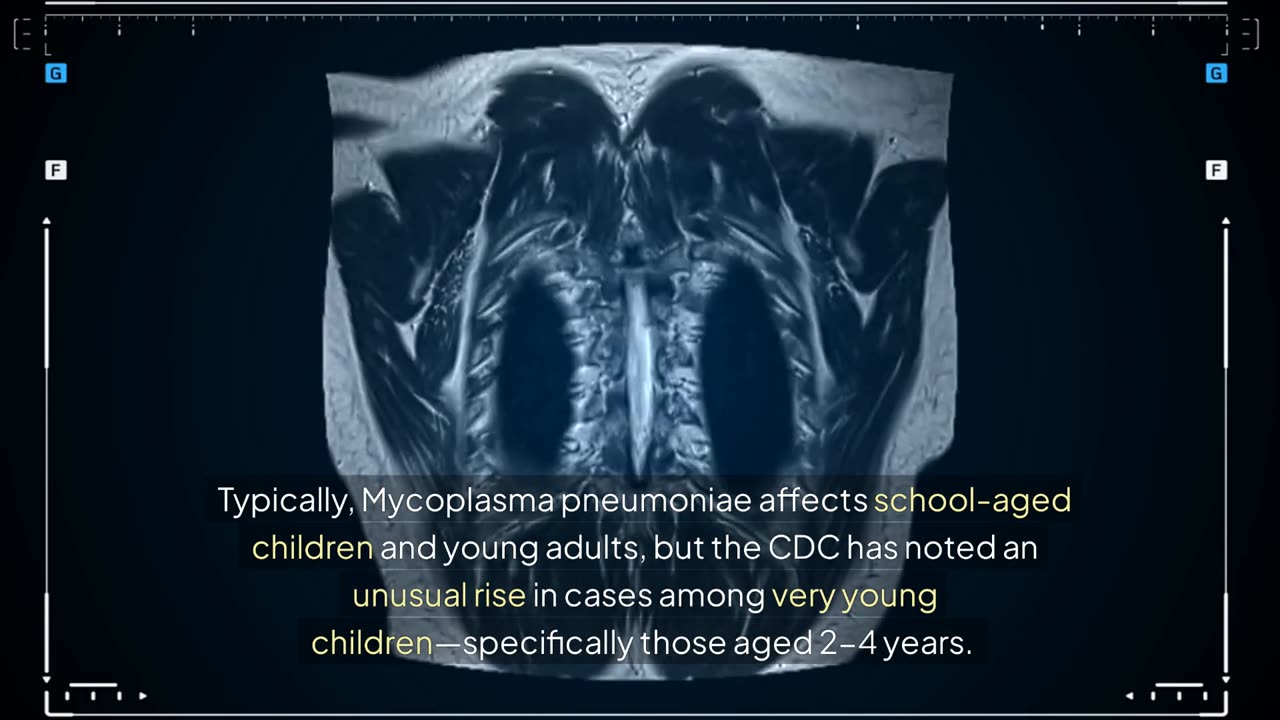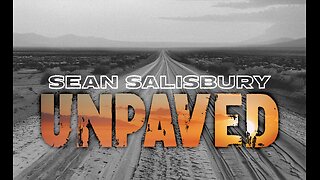Premium Only Content

Mycoplasma Pneumoniae: Why Rising Infections Have the CDC on High Alert
---
**Introduction**
In an unexpected health warning, the Centers for Disease Control and Prevention (CDC) recently alerted Americans to a concerning surge in infections caused by *Mycoplasma pneumoniae*. Unlike many respiratory infections, *M. pneumoniae* often flies under the radar, earning it the nickname "walking pneumonia" for its mild and sometimes stealthy symptoms. But what’s prompting this sudden rise, and why is it particularly impacting young children? In this article, we’ll explore the unfolding story of *Mycoplasma pneumoniae*—from what it is and how it spreads to why the CDC is issuing this rare warning.
---
### 1. **What is Mycoplasma Pneumoniae? A Silent Threat Explained**
The bacteria *Mycoplasma pneumoniae* may not be a household name, but it’s actually one of the most common causes of respiratory infections in the United States. Unlike other bacteria, *M. pneumoniae* is unique for lacking a cell wall, making it resilient to many common antibiotics. It can infect multiple areas in the body but is best known for causing respiratory tract infections that range from mild cold-like symptoms to full-blown pneumonia.
One of the reasons *M. pneumoniae* is particularly concerning is its subtlety. Symptoms can be so mild that people often brush it off as just a cold. Yet, the CDC’s recent data shows that this “cold” can easily escalate, especially in children and adolescents. Understanding this silent bacteria’s behavior and risks is the first step in protecting our families and communities.
---
### 2. **Who is Most at Risk? The Unusual Age Shift in Cases**
Typically, *Mycoplasma pneumoniae* infections are most common among children aged 5 to 17 and young adults. However, 2023 has seen an unusual shift. According to the CDC, cases among children aged 2-4 years have risen from 1% to 7.2% this year—a staggering increase. This shift marks the first time that toddlers, an age group not traditionally vulnerable to this infection, are seeing disproportionately high rates.
Experts, including Dr. Sharon Welbel from Cook County Health, describe this increase as “dramatic.” Not only are cases rising, but they are impacting an age group that typically has fewer respiratory complications. As these cases continue to climb, it’s crucial for parents and caregivers to recognize the signs in younger children, whose symptoms can differ from those in older kids and adults.
---
### 3. **The Symptoms: What to Watch For and When to Act**
The symptoms of *Mycoplasma pneumoniae* can vary significantly depending on the age and health of the person infected. For most, it presents as a mild chest cold—fever, a worsening cough, fatigue, and a sore throat. But for others, especially young children, symptoms can be more complex. For instance, children under five may experience sneezing, watery eyes, vomiting, and even diarrhea—signs that differ from the classic respiratory symptoms seen in adults.
The CDC notes that *M. pneumoniae* has an unusually long incubation period, with symptoms taking up to four weeks to emerge after exposure. This delayed onset can make tracking and controlling the spread of the bacteria difficult. For caregivers, being vigilant about symptoms and understanding when to seek medical help are vital, especially as the bacteria can lead to more serious conditions, including “walking pneumonia,” which, though mild, can linger and disrupt daily life.
---
### 4. **Transmission and Spread: How Mycoplasma Pneumoniae Travels**
One of the major factors in the rising *M. pneumoniae* cases is its transmission method. Like many respiratory infections, *M. pneumoniae* spreads through respiratory droplets. However, its long incubation period means that an infected person can unknowingly pass it to others weeks before they show symptoms.
Interestingly, the CDC states that short-term exposure is unlikely to result in infection. But for those in close, prolonged contact with an infected individual—such as family members or classmates—the risk increases significantly. As schools, daycares, and workplaces resume regular operations, being aware of how this bacteria spreads can be crucial in preventing outbreaks in high-density areas. Basic preventive measures, including good hygiene and wearing masks when needed, can help reduce the risk of transmission.
---
### 5. **Treatment Challenges: Why Not All Antibiotics Work**
The unique biology of *Mycoplasma pneumoniae* complicates its treatment. Unlike most bacteria, *M. pneumoniae* lacks a cell wall—a feature that renders many traditional antibiotics ineffective. This characteristic places *M. pneumoniae* in the category of “atypical bacteria.” Infections caused by atypical bacteria require a different approach, often using antibiotics that target proteins or other internal structures rather than cell walls.
Dr. Welbel emphasizes the importance of precise antibiotic selection when treating *M. pneumoniae*. Misdiagnosing or using ineffective antibiotics can delay recovery and allow the infection to linger. For parents, it’s essential to consult healthcare providers who are aware of these nuances and can recommend the most effective treatments.
---
### **Conclusion: Staying Informed and Protecting Our Communities**
The CDC’s alert about *Mycoplasma pneumoniae* serves as a reminder of the unpredictable nature of bacterial infections and their ability to impact even the youngest and most vulnerable among us. While this bacterium is not new, the surge in infections and the shifting age demographics make it clear that awareness and vigilance are more important than ever. By understanding what *Mycoplasma pneumoniae* is, recognizing its symptoms, and knowing when to seek medical advice, we can all play a part in limiting its spread.
As we navigate this latest public health concern, let’s keep informed and take simple preventive measures to protect our families and communities. Stay tuned to our channel for more health updates, and don’t forget to like, share, and subscribe. We’d love to hear your thoughts: Have you or someone you know been affected by *Mycoplasma pneumoniae*? Share your experiences and questions in the comments below!
-
 LIVE
LIVE
The HotSeat
56 minutes ago🚨 Dems Swear Mail-In Voting Is “Secure”… Trump Says HELL NO 🚨
539 watching -
 DVR
DVR
Stephen Gardner
57 minutes ago🔥YES! Trump unleashes Democrats’ worst nightmare!
1 -
![[Ep 731] Trump Leading the World | Islam NOT Compatible with West | Guest Sam Anthony [your[NEWS](https://1a-1791.com/video/fww1/93/s8/1/c/n/K/a/cnKaz.0kob-small-Ep-731-Trump-Leading-the-Wo.jpg) LIVE
LIVE
The Nunn Report - w/ Dan Nunn
1 hour ago[Ep 731] Trump Leading the World | Islam NOT Compatible with West | Guest Sam Anthony [your[NEWS
135 watching -
 2:05:30
2:05:30
Side Scrollers Podcast
5 hours agoEveryone Hates MrBeast + FBI Spends $140k on Pokemon + All Todays News | Side Scrollers Live
58.7K2 -
 46:56
46:56
The White House
5 hours agoPress Secretary Karoline Leavitt Briefs Members of the Media, Aug. 19, 2025
30K40 -
 1:11:36
1:11:36
Sean Unpaved
3 hours agoFootball Flashpoint: Bengals' D in Distress, Colts' Bet on Jones, & Micah's Trade Talks
22.9K2 -
 LIVE
LIVE
The Robert Scott Bell Show
1 hour agoVaccine Lawsuits & Legal Fights, Autism–ADHD Link to Tylenol, MAHA Action, Caitlin Sinclair, Fat Jabs for Pets - The RSB Show 8-19-25
75 watching -
 2:57:22
2:57:22
Right Side Broadcasting Network
7 hours agoLIVE REPLAY: White House Press Secretary Karoline Leavitt Holds a Press Briefing - 8/19/25
76.1K46 -
 1:03:48
1:03:48
Timcast
4 hours agoGavin Newsom SURGES In Polls, COPIES Trump's Style
142K118 -
 4:37
4:37
Michael Heaver
10 hours agoBusted France Faces UPRISING
18.3K5